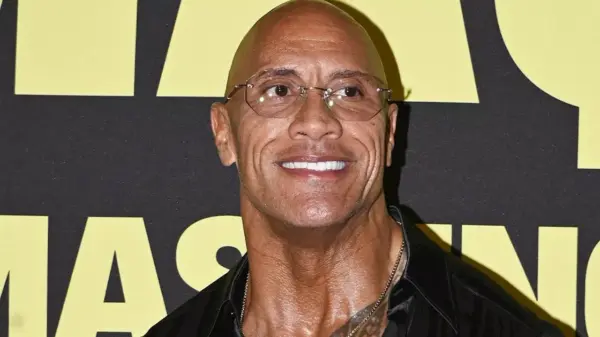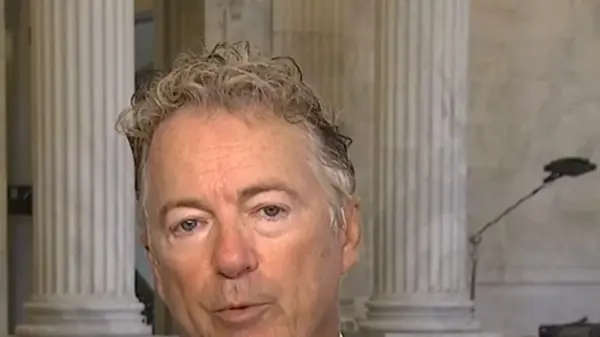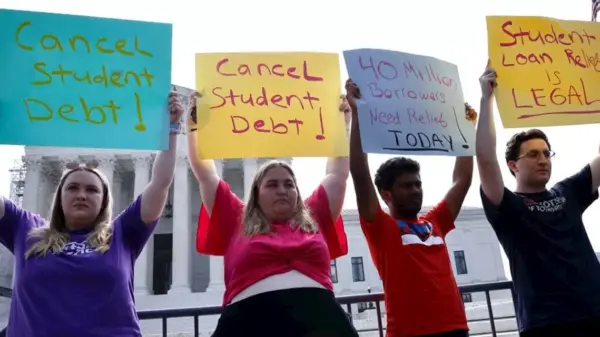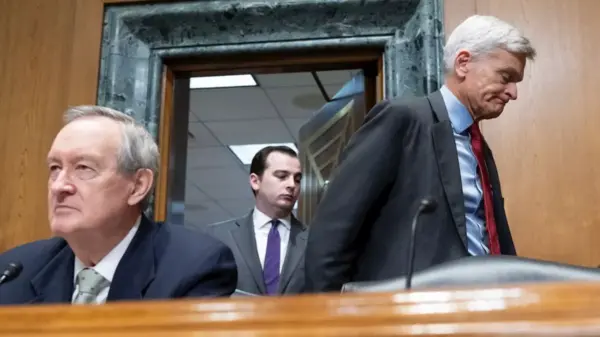House Republicans are preparing to advance a significant crime bill in response to President Trump’s call for a “comprehensive crime bill.” This initiative aligns with Trump’s ongoing focus on crime, particularly in Washington, D.C., and aims to address issues such as cashless bail, which Trump has criticized for its alleged contribution to rising crime rates. The specifics of the bill remain uncertain, but the push represents a shift in legislative priorities following lawmakers’ summer recess.
In a message posted on Truth Social, Trump stated, “Speaker Mike Johnson and Leader John Thune are working with me and other Republicans on a Comprehensive Crime Bill. It’s what our Country needs.” Although both Thune and Johnson have been in discussions with Trump, Senate Republican aides anticipate that the House will take the lead on this legislation. The proposed bill faces challenges in the Senate, where at least seven Democratic votes will be necessary to surpass the 60-vote threshold required to end a filibuster.
The House is set to take immediate action upon returning from recess, focusing initially on crime in the nation’s capital. The House Oversight and Government Reform Committee has scheduled a hearing for September 18, 2023, featuring D.C. Mayor Muriel Bowser, D.C. Council Chairman Phil Mendelson, and D.C. Attorney General Brian Schwalb. This hearing will investigate the state’s crime situation and explore legislative measures aimed at addressing juvenile crime, educational system issues, and policing policies imposed by the D.C. City Council, which Republicans argue hinder law enforcement efficacy.
On the Senate front, Judiciary Committee Chairman Chuck Grassley is expected to lead discussions on a crime bill, collaborating with the Department of Justice and key congressional figures. A Republican aide noted that the talks are still in the “infancy” stage, indicating that specifics will take time to develop.
Congress is also approaching a critical deadline. By September 10, lawmakers must act to extend Trump’s control over the D.C. police force, a provision that is set to expire after 30 days under the 1973 D.C. Home Rule Act. Republican aides express skepticism about Congress’s ability to pass this extension swiftly, especially given the anticipated opposition in the Senate, where a filibuster is likely.
Senate Democratic Leader Chuck Schumer has publicly stated, “there is no f—ing way” he would support extending Trump’s crime emergency declaration for D.C. Meanwhile, a comprehensive GOP crime bill could potentially offer additional resources for law enforcement, reminiscent of the 1994 crime bill, and provide the president greater authority to deploy National Guard troops to cities like Los Angeles and Washington.
Trump’s conservative allies in Congress have urged him to adopt a more aggressive stance on crime, particularly in Washington, where homicide rates spiked during the COVID-19 pandemic. Senator Mike Lee of Utah has called for the repeal of D.C.’s Home Rule Act to “federalize” the capital, while Senator Roger Marshall of Kansas has voiced strong support for Trump’s crime initiatives, noting that approximately eight violent crimes occur daily in the city.
In addition to crime legislation, lawmakers are addressing Trump’s request for $2 billion to fund a plan to enhance the aesthetics of Washington. Mayor Bowser expressed her support for the funding, which comes in light of a significant budget shortfall following a $1 billion cut in the federal budget earlier this year.
As the situation unfolds, the Republican approach to crime legislation is expected to dominate discussions in both the House and Senate, with potential political ramifications for Democrats in swing states and districts as the debate intensifies.





































































